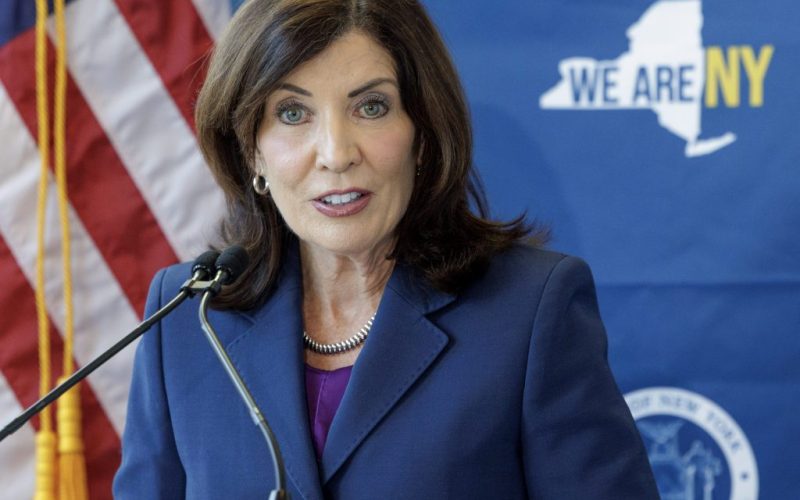Gov. Hochul said Friday she’d introduce legislation to the state budget that would make it easier to involuntarily commit those suffering from mental illness to hospitals, citing an uptick in violent crimes on the NYC subway system.
A spate of shocking crimes — including the woman fatally set on fire aboard a Brooklyn F train and the man thrown in front of a 1 train, many allegedly done by those with serious mental illness — have brought the issue of public safety on the city’s transit system front and center.
“We can’t fully address this problem without changes to state law. That’s why I will be including legislation in my executive budget to finally change New York’s involuntary commitment standards,” Hochul said in a statement announcing the rule changes.
Hochul spokesman Avi Small wouldn’t elaborate on how exactly the governor wants to expand the involuntary commitment laws, saying, “Those details will be in the executive budget.”
Currently, hospitals in the state are able to take in people who are a risk to themselves or others. This new legislation would “expand that definition” to allow for more involuntary removals, according to a release.
The move comes after Mayor Adams has for months pushed Albany to enact legislation broadening the grounds for involuntary removal.
The mayor’s own involuntary commitment initiative, under which NYPD officers and outreach team took in individuals who appeared to pose a threat, has touched off controversy since its start in 2022.
A spokesperson for Adams did not immediately respond to a request for comment.
The governor’s legislation is likewise likely to set off a fight with some left-leaning elected officials.
Some progressives and mental health advocates have warned that expanding the policy could imperil people who aren’t actually in need of hospitalization and that simply removing people from subways does not provide any long-term solutions.
Glenn Liebman, CEO of the Mental Health Association in New York State, was doubtful that Hochul’s legislation would make a meaningful change on the ground
“I honestly don’t think that will have a major effect,” he said, adding that people continue to fall through the cracks after being released from hospitals and prison because they struggle to get their medication or get meetings with a provider.
“Right now, our aftercare system is failing,” Liebman said.
The governor also said she will introduce legislation to change Kendra’s Law, which allows people to petition a judge to force someone with mental illness into treatment.
Councilmember Bob Holden slammed Hochul for this, arguing that the city and state simply need to enforce existing laws instead of changing them.
“Governor Hochul is gaslighting the public by punting the mental health crisis to the State Legislature under the guise of needing changes to Kendra’s Law,” Holden said in a statement. “The truth is that Kendra’s Law works when properly enforced, but city and state agencies have failed to follow through, and the Governor has failed to allocate the necessary resources to make it effective.”
With Chris Sommerfeldt








